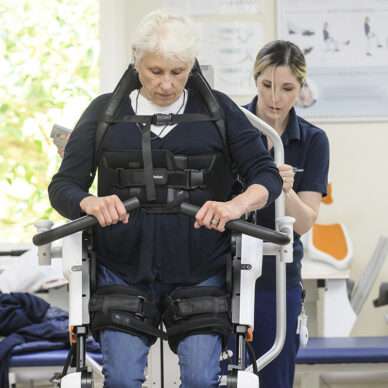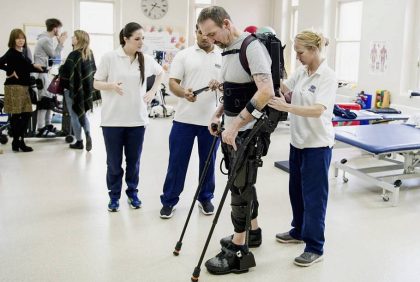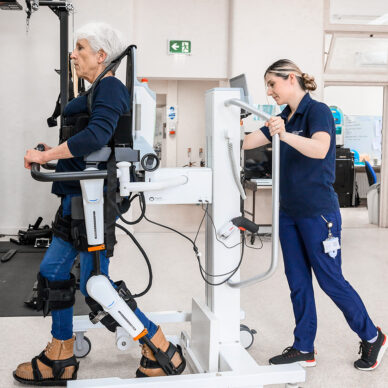Benefits of Exoskeleton Therapy
An initial assessment will help us to see whether exoskeleton therapy is likely to benefit you, along with which type is best for your condition and whether adding other forms of therapy would improve progress.
Gaining muscle strength and flexibility
With robotic assistance legs and arms can gain muscle strength and improve flexibility. It can also reduce spasms and muscle tightness, which are common with spinal cord injuries.
Improving walking ability
Regular therapy can stimulate neuroplasticity, helping retrain your brain to learn to walk again by relearning step patterns, weight shifts and natural balance.
Reducing pain
Muscle stiffness can be alleviated which can reduce pain and spasticity, along with improvement in bowel and bladder movement.
Regaining Confidence
Being able to walk again, even with assistance, can improve independence, confidence, and mental health.

Who can benefit from Exoskeleton Therapy
Exoskeleton therapy can be intensive and requires commitment from both patients and our dedicated team, who provide exceptional support throughout the process. However, it is important to understand that results vary for each individual, and no personal guarantee of success can be made.
For many patients, exoskeleton therapy leads to increased mobility, ongoing physical support, and improved overall health. Some individuals regain independent mobility, while others make significant progress toward that goal.
The ability of an exoskeleton to restore neural function through repetitive movement has become increasingly evident, offering patients a strong opportunity for recovery. Our team is ready to work with you to explore how far exoskeleton therapy can take you on your rehabilitation journey.

